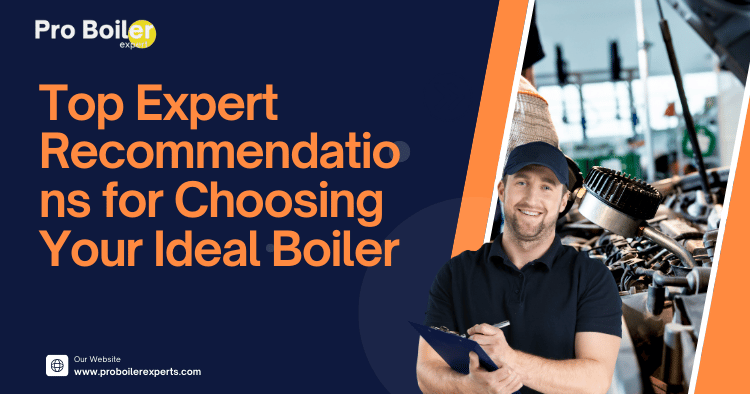Table of Contents
- Understanding Your Heating Needs
- Types of Boilers Explained
- Factors to Consider When Choosing a Boiler
- Energy Efficiency Ratings
- Budget Considerations
- Installation and Maintenance
- Frequently Asked Questions
- Conclusion
Understanding Your Heating Needs
Before diving into the specifics of boiler types and features, it’s essential to assess your unique heating needs. Consider factors such as the size of your home, the number of rooms, and the insulation quality. A larger home may require a different boiler capacity than a compact apartment.
Key Considerations:
- Square Footage: Measure your home to determine the necessary BTU (British Thermal Unit) output.
- Hot Water Demand: If you have multiple bathrooms or a large family, consider how much hot water will be needed simultaneously.
- Climate: Colder climates may require a more robust heating system.
To help visualize your heating needs, here’s a simple table outlining typical BTU requirements based on square footage:
| Home Size (sq ft) | BTUs Required |
|---|---|
| 1,000 – 1,200 | 30,000 – 40,000 |
| 1,200 – 1,500 | 40,000 – 50,000 |
| 1,500 – 2,000 | 50,000 – 60,000 |
| 2,000 – 2,500 | 60,000 – 75,000 |
Types of Boilers Explained
Understanding the different types of boilers is crucial for making an informed choice. Here’s a breakdown of the main types:
- Combi Boilers: These compact units provide both heating and hot water on demand, making them ideal for smaller homes or apartments. They’re energy efficient and reduce the need for a separate water tank. For more on the benefits of combi boilers, check out Top 5 Benefits of Choosing Combi Boilers for Your Home.
- Regular Boilers: Also known as conventional or heat-only boilers, these are suitable for larger homes with existing hot water storage systems. They require more space and are less efficient than combi and system boilers. For a comprehensive understanding, refer to Top 5 Benefits of Conventional Boilers for Your Home.
- Condensing Boilers: These models are designed to recover heat from exhaust gases, making them highly efficient. Explore more in Top 5 Benefits of Condensing Boilers You Should Know.
System Boilers: Perfect for homes with higher hot water demands, system boilers work with a hot water cylinder to store hot water. They’re great for homes with multiple bathrooms. Learn more about their advantages in Top 5 Benefits of Choosing a System Boiler for Your Home.
Biomass Boilers: For an eco-friendly option, biomass boilers use organic materials as fuel. Check Top 5 Benefits of Biomass Boilers for Eco-Friendly Heating for insights.
Factors to Consider When Choosing a Boiler
When selecting a boiler, several factors come into play. Here’s what experts recommend considering:
- Fuel Type: Common options include gas, oil, and electric boilers. Gas boilers are often the most cost-effective, but availability may vary depending on your location. For more on gas vs. oil boilers, visit Gas vs. Oil Boilers: 5 Key Differences.
- Size and Output: Ensure that the boiler is appropriately sized for your home’s heating needs. An undersized boiler won’t heat your home effectively, while an oversized one can lead to energy waste.
- Brand Reputation: Research reputable brands that offer reliable warranties and have good customer reviews. Brands like Vaillant, Worcester Bosch, and Ideal are often recommended. See comparisons in Worcester Bosch Boilers: Comprehensive Brand Comparison and others.
- Installation Requirements: Some boilers may require specific installation conditions, such as flue space or ventilation, which can affect your choice. Refer to Essential Pre-Installation Checklist for Your New Boiler for guidance.
Energy Efficiency Ratings
Energy efficiency is a crucial factor when choosing a boiler. The efficiency of a boiler is typically indicated by its Energy Star rating or seasonal efficiency rating (SEER). The higher the rating, the more energy-efficient the boiler.
Energy Efficiency Ratings Explained:
- A-rated Boilers: Over 90% efficiency, excellent choice for energy savings.
- B-rated Boilers: 86-90% efficiency, still a solid option.
- C-rated Boilers: 82-86% efficiency, can be less cost-effective.
By choosing a high-efficiency boiler, not only do you reduce your carbon footprint, but you can also save on energy bills. Explore energy-efficient options in Top 5 High-Efficiency Boilers for Optimal Home Comfort.
Budget Considerations
While upfront costs are important, consider the long-term savings associated with your boiler choice. Here’s a brief overview of potential costs:
| Boiler Type | Average Cost (including installation) | Annual Running Costs |
|---|---|---|
| Combi Boiler | £1,500 – £3,000 | £600 – £1,200 |
| System Boiler | £1,800 – £3,500 | £700 – £1,400 |
| Regular Boiler | £1,500 – £3,000 | £800 – £1,500 |
These figures can vary significantly based on your home’s specific needs and the installation process. For more on installation costs, see Understanding Boiler Installation Costs: Complete Breakdown.
Installation and Maintenance
Proper installation and regular maintenance are vital for maximizing your boiler’s lifespan and efficiency. Always hire a qualified professional for installation to ensure safety and compliance with regulations. For tips on installation, check Installation Day: What to Expect for Your New Boiler.
Maintenance Tips:
- Schedule annual servicing to keep your boiler running smoothly.
- Regularly check for leaks and unusual noises.
- Consider a service plan for peace of mind. Learn more in Essential Boiler Maintenance Tips: Keep Your System Efficient.
Remember, regular maintenance can prevent costly repairs down the line and ensure your boiler operates at peak efficiency.
Frequently Asked Questions
How long do boilers last?
Most modern boilers last between 10 to 15 years, but with proper maintenance, some can last even longer.
What is the best type of boiler for a small home?
A combi boiler is often the best choice for small homes or apartments due to its compact size and efficiency. For more on combi boilers, visit Top 5 Benefits of Choosing Combi Boilers for Your Home.
Can I install a boiler myself?
No, it’s crucial to have a qualified professional install your boiler to ensure safety and compliance with local regulations.
Are there government incentives for energy-efficient boilers?
Yes, many governments offer rebates or incentives for upgrading to energy-efficient heating systems. Check your local government’s website for details.
Conclusion
Choosing the right boiler for your home can seem daunting, but by understanding your heating needs, the different types available, and key considerations, you can make an informed decision. Remember to prioritize energy efficiency and proper installation for long-term savings and comfort. If you have further questions, don’t hesitate to consult with a heating expert or your local installer. Happy heating!
By providing these expert recommendations, we hope you feel more confident in selecting the ideal boiler for your home.




